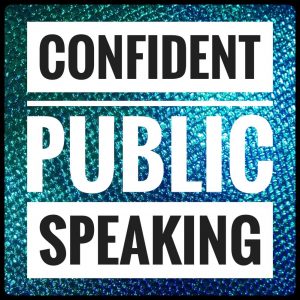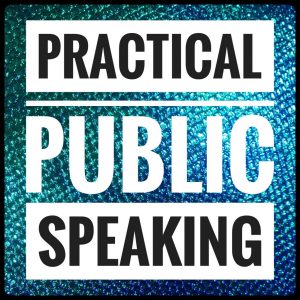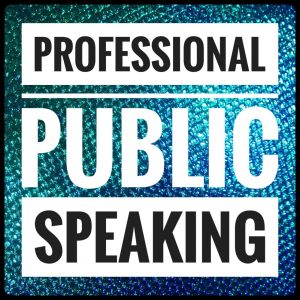We never stop growing as professionals – developing your public speaking and presentation skill-set
The ability to speak well in public is a key professional skill, yet so many are affected by nerves and don’t always make the most of the opportunity.
In my previous Public Speaking article, for the young professional, I discussed why we get nervous and what nerves do to us, and gave some essential advice on how to prepare to speak in public.
As a more established professional, you have a wealth of knowledge, skills and experience, gravitas and authority – but we all develop habits of thinking, speaking and behaving that could be limiting further potential growth. You may have always wanted to build your public speaking skill yet never got round to it, or perhaps let nerves stop you doing something about it. We never stop developing personally or professionally and it’s never too late to start.
Whether you’re talking to an audience about your organisation and your work, in conversation with a client, or speaking in court, take a tip from the ancient Greeks. They knew that any audience needs three things from you:
Ethos – They need to trust you. Establishing your credibility and a sense of authority from the beginning, plus facts, figures and an evident mastery of your field will reassure them.
Pathos – They need to like you. Attention to appearance and body language, a well-rehearsed first few words, emotional intelligence, empathy, courtesy and listening skills will all engage them.
Logos – They need to understand you. So Plain English, short conversational sentences and a clear message, giving them an answer to their unspoken ‘what’s in it for me?’ question will keep their attention.
Prepare for success
You may sometimes be called on to deliver presentations to groups and organisations about your firm’s services. If this isn’t your usual role, it can seem daunting – but you can take control, deal with nerves and deliver an effective message if you prepare for success.
Prepare your mind
How you think [the words and images you use to talk to yourself] affects how you feel [your physical and emotional reaction] which then affects how you behave [what you do and say and the manner that comes across to others]. All this together then drives how the world treats you, which affects how you think – and sets you going round the same old cycle once again.
Think – All that energy and adrenaline is there to help you and if you can start to consider it as a friend, the fuel you need to power your presentation or the conversation, you may even come to welcome it as excitement, a sense of occasion rather than ‘nerves’. Change the words you use to think about nerves, replacing negatives with positives – ‘it’s an exciting opportunity, they’re interested, I’m ready … ‘ They want you to do well, most people are nice, you wouldn’t be there if you couldn’t do it, you’ve prepared. Collect your positive thoughts, any past compliments, achievements and successes, write them down and read them regularly.
Visualise – Picture your own success, imagine yourself looking smart and collected in front of an interested and attentive audience.
Start a folder of positive terms and inspiring images in your phone, so you can go back to it for a top-up next time you start thinking about presentations, to reinforce an encouraging approach.
Prepare your material
Audience – If you’re planning a presentation, ask yourself ‘what does this audience need to hear from me right now?’ Focus on the benefits you have to offer them.
Aim and Objectives – Decide your aim for the presentation; a one-sentence statement of what you intend to achieve. Then establish three objectives; three outcomes for the audience at the end of the talk. For example,
Aim: I’m going to give an introduction to Confident Public Speaking skills.
Objectives: by the end of my one-day course they’ll be able to:
-
Describe the cause and effect of nerves
-
Demonstrate how to plan and prepare a presentation
-
Deliver a presentation to the rest of the group
Q&A – Read around your subject so you know more than you’re delivering on the day and prepare for the most difficult questions. They probably won’t happen, but if they do, then you’ve planned a strategy in advance.
PowerPoint – If you’re using PowerPoint, the fewer words on screen the better. Go for lots of images instead that will illustrate what you say rather than lots of text that will tempt you to look at the screen and read it out. Always be able to deliver without it – it’s an optional extra, not the presentation itself.
Notes – A6 note cards look better than flappy A4 sheets and are comfortable to hold and use. Use bullet points and key words, not the full text. If the script is there you’ll be tempted to look at it, not at them.
And rehearse, rehearse, rehearse.
Prepare your voice
What annoys you most when you attend any presentation? Speakers who talk too quickly, too quietly, mumble and ramble? These are very common problems and can all be left behind with practice.
Personal impact – At the beginning, relax, breathe, make eye contact and smile as you deliver your well-rehearsed first few words from memory. If you feel yourself getting flustered, or you feel your throat closing up with tension, stop, relax, think about your breathing and take a few calming diaphragm breaths to help you think before you speak. A sip of water helps you collect your thoughts before starting to speak again. You’ll feel, look and sound better.
Power – as well as giving you fuel and calming you down, breathing from your diaphragm helps you control volume and projection. While you’re rehearsing in private, throwing balls of newspaper as you speak encourages you to project your voice. Keep practicing, as projection is a physical activity that improves with repetition.
Pace – nerves often make us speed up, so slow down if you need to. A variety of speed, volume and tone is interesting. Edit out those ums and ers, you really don’t need them. Allow the pause instead – this lets them think and catch up with you, and helps you think and breathe, too.
Practice speaking every day. What may seem awkward and odd at first will with practice become a natural, useful and enjoyable skill that you’ll no longer need to worry about.
Contact
Philippa Hammond


